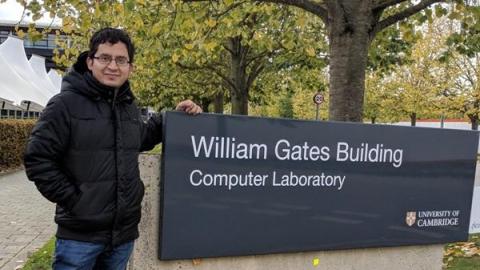About the project
Artificial Intelligence has been hugely successful in solving complex tasks and a significant progress has been made in bringing the utility of deep neural networks on tiny resource-constrained embedded devices via optimizing inference. However, learning the deep learning models on the device still remains challenging due to the mismatch between the computation complexity of deep learning models against the resource availability on the device. In this project, we aim to tackle this challenge.
You will:
- explore the performance of different exisiting learning approaches to find their limitations
- investigate and design novel machine learning algorithms for learning, by solving the limitations, and propose system based optimisation techniques and design hardware accelerators
- work to bring the capability to perform the learning process of deep learning models directly on low-cost and low power tiny embedded devices
You'll work to bring the capability to perform the learning process of deep learning models directly on low-cost and low power tiny embedded devices. Learning paradigms include on-device training, on-device continual learning and on-device Bayesian learning.
Your work will have a potential to create socio-economic impact in many ways. Firstly, creating novel on-device efficient learning systems will allow masses to enjoy the advantages provided by deep learning for many useful and ubiquitous computing applications with full control over privacy. Further, low power solutions will result in reducing the carbon footprint of deep learning models contributing to sustainable computing. Lastly, your work can guide the development of the next generation of technologies and spark further research in applications on embedded devices leveraging AI.
This is a great opportunity to work with well-known external key partners - Stanford, OnSemi and Google- in a positive and vibrant university environment on cutting edge technology. University of Southampton is a top university (1% of world universities and in the top 10 of the UK) and the School of Electronics and Computer Science is one of the top CS departments in the UK. You will also be working with other researchers and PhD students in the team and will have a chance to publish and present your work at the top-tier conferences and journals in the area of Systems, ubiquitous computing, and machine learning. We have a large network of collaborations with academics at Imperial, Kings College London, Newcastle, Cambridge, Cornell, and industrial labs such as Samsung AI and Bell Labs in Cambridge. These will help you to foster further collaborations, strengthen your network and look out for internships.
Further, you will also be able to join International Centre for Spatial Computational Learning and ARM-ECS centre

